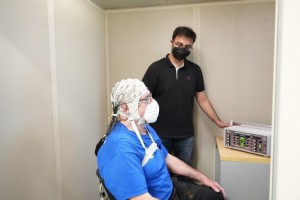A transient ischemic attack (TIA) consists of short-lived stroke-like symptoms, lasting only minutes to hours, and does not cause permanent neurological damage. Despite the benign nature of TIAs, the pathophysiologic mechanisms are similar to those of ischemic stroke and inevitably accelerate the onset of stroke. Of 3 patients who have had a TIA, one will have a stroke sooner or later. So this is vitally important to understand and prevent her TIA.
A TIA usually develops within minutes and all signs and symptoms dwindle within a day. As noted above, the signs and symptoms of TIA and stroke are similar and include acute onset of:
- Weakness, numbness or paralysis in the face, arm or leg, typically on one side of the body
- Slurred or garbled speech or difficulty understanding others
- Blindness in one or both eyes or double vision
- Vertigo or loss of balance or coordination
As mentioned above, the pathophysiological mechanisms of both TIA and ischemic stroke are the same, involving blockage of blood supply to the brain. However, in a TIA, unlike an ischemic stroke, the obstruction is short and transient.
Blockages can be caused by both plaques, fatty deposits containing cholesterol, and emboli, blood clots that enter the brain's circulatory system from different parts of the body.
Several factors have been suggested to play an important role in accelerating TIA development. Family history, age, male sex, previous TIA, hypertension, hypercholesterolemia, cardiovascular disease, diabetes, and, interestingly, COVID-19 are considered as potential risk factors.
However, there are some lifestyle changes that can help prevent the development of a TIA: quit smoking, control cholesterol and diabetes, limit alcohol and salt intake, eat plenty of fruits and vegetables, and exercise regularly. It is also recommended to maintain a normal weight to prevent the development of TIAs.




Related Posts